College of Agriculture & Environmental Sciences
COVID-19—keeping Unisans informed
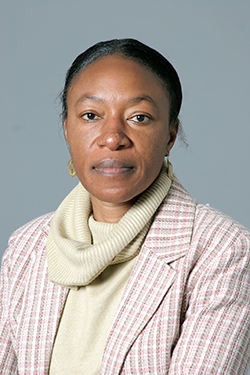
Dr Prudence N Kayoka-Kabongo is a senior lecturer in Unisa’s Department of Agriculture and Animal Health. She presented similar information on COVID-19 as a guest speaker on Seco and Sekhukhune FM radio to reach out to communities located in remote areas.
Severe acute respiratory syndrome coronavirus 2 (SARS-CoV-2) has been confirmed as the causative virus of coronavirus disease 2019 (COVID-19). It was first reported in December 2019 in China. To date more than 90 000 people have been infected with the virus, while 3 000 deaths have been reported worldwide. Although these figures are alarming, many people have also recovered from the illness caused by COVID-19.
China has reported the highest number of infections. The virus has spread to more than 60 countries on other continents. Confirmed cases have been reported in Afghanistan (n=1), Andorra (n=1), Australia (n=33), Austria (n=14), Bahrain (n=2), Belgium (n=8), Brazil (n=2), Cambodia (n=1), Canada (n=24), China (n=80 134), Croatia (n=8), Denmark (n=4), Dominican Republic (n=1), Estonia (n=1), Finland (n=6), France (n=130), Georgia (n=3), Germany (n=150), Greece (n=7), Iceland (n=3), India (n=5),Indonesia (n=2), Iran (n=1501), Iraq (n=21), Israel (n=10), Italy (n=1694), Japan (n=705), Jordan (n=1), Kuwait (n=56), Lebanon (n=10), Lithuania (n=1), Luxembourg (n=1), Malaysia (n=29), Mexico (n=5), Nepal (n=1), the Netherlands (n=13), North Macedonia (n=1), Norway (n=19), Oman (n=6), Pakistan (n=5), the Philippines (n=3), Portugal (n=2), Qatar (n=7), Romania (n=3), Russia (n=2), Saudi Arabia (n=1), Singapore (n=108), South Korea (n=4 335), Spain (n=45), Sri-Lanka (n=1), Sweden (n=14), Switzerland (n=24), Taiwan (n=40), United Arab Emirates (n=21), United Kingdom (n=40), United States (n=88), and Vietnam (n=16).
The first confirmed positive cases in Africa have been reported in Algeria (n=3), Egypt (n=2), Tunisia (n=1), Morocco (n=1), Nigeria (n=1) and Senegal (n=1). Note that only two positive cases have been reported in sub-Saharan Africa from individuals who have returned from infected countries.
What is COVID-19?
COVID-19 is a coronavirus that has never been identified in humans before. It was first found in humans suffering flu-like symptoms with severe respiratory problems in December 2019. The outbreak was confirmed in December 2019 in Wuhan, a city in China’s Hubei province. COVID-19 is not similar to the coronaviruses that commonly circulate among humans and cause mild illnesses such as the common cold.
Which other coronaviruses circulate among domestic animals?
Genetically different coronaviruses are found in animals. These viruses are mainly hosted by bats and rodents, but can be transmitted to intermediate hosts such cattle, camels, civet cats and pigs. The bovine coronavirus causes pulmonary problems in cattle, infectious bronchitis in poultry is caused by a coronavirus, and so on.
What is SARS-CoV-2?
The novel coronavirus is a spiked virus and its predilection site is lung cells. This means that the virus has the ability to attach to lung cells and use lung cells’ metabolism to replicate in the lungs and destroy the cells, which explains why breathing difficulties are one of the symptoms of COVID-19 infection.
What are the symptoms of COVID-19?
Two to 14 days after you have been in contact with an infected person, you may develop the following mild or severe symptoms: running nose, sore throat, fever, coughing and shortness of breath. These are the most common symptoms. There are some reports of gastrointestinal symptoms (nausea, vomiting or diarrhoea) before respiratory symptoms occur. The virus mainly attacks the lungs. Others have also reported people that tested positive but not showing any clinical symptoms.
What is the source of 2019 SARS-CoV-2?
Coronaviruses are zoonotic, which means they can be transmitted from animals to humans. According to published reports, this virus most likely emerged from an animal source. In Wuhan, different wild animal species are sold alive, among others bats, snakes and pangolins. The virus might have come from a natural host such as bats or rodents, mutated into an intermediate host, probably pangolins, and then infected humans. The pangolin, an ant-eating mammal, was probably the source of the virus. A coronavirus that is 99% similar to the one in infected humans was isolated from these mammals, but there are also other theories about the origin of COVID-19. Since the outbreak, person-to-person spread has been confirmed and it continues.
How does the virus spread?
The virus spreads through aerosol droplets. When a sick person coughs or sneezes, others may inhale particles containing the virus, thus breathing in the virus. Direct contact with contaminated areas or body parts such an infected person’s hands or mouth may also lead to infection. The virus has also been isolated in faecal matter, which suggests that faecal–oral transmission is also possible.
Is it safe to travel to China or other countries where COVID-19 cases occur?
No, it is currently not safe to travel to those countries. Several studies are conducted to understand the behaviour of this virus, but the spread of the disease cannot yet be contained.
What must I do if I have recently travelled to one of the countries where COVID-19 cases occur and I get sick?
Firstly, restrict your own movement, stay where you are and phone your nearest hospital for advice. Alternatively, call the hotline of South Africa’s National Institute of Communicable Diseases at 0800 029 999 or 082 883 9920 or 066 562 4021.
To stop the virus from infecting another person, also avoid public transport and other places where people gather. This will stop the virus from multiplying and eventually the virus will die off. Wear a mask and avoid close contact with your own family members while you are waiting to be tested.
When can employees go back to work after they have returned from China or other countries where COVID-19 cases occur?
Depending on when the exposure might have taken place, 14 to 21 days.
Is SARS-CoV-2 the same as the viruses that caused Middle East Respiratory Syndrome (MERS-CoV) or Severe Acute Respiratory Syndrome (SARS)?
No, although SARS-CoV-2 belongs to the same family, it is not the same virus. The new virus has shown 70% similarity to the coronavirus that caused Severe Acute Respiratory Syndrome in 2002.
How can I prevent exposure to the virus?
- Do not go to areas where cases of COVID-19 have been reported.
- Keep away from people who are coughing and sneezing.
- Avoid putting your hands on your face.
- Avoid kissing and shaking hands.
- Adhere to basic hygiene principles. For example, wash your hands properly with antiseptic, allowing appropriate contact time (20 seconds).
- Wear an appropriately sealed mask to avoid contaminating others if recommended to do so.
Should I avoid contact with pets or animals if I am sick?
Yes, avoid contact with animals as a virus is an obligate parasite, which means it needs a living cell to replicate (to multiply) and it has a high ability to mutate (to change a structure of a gene, adapt and be transmitted to subsequent generations). At this stage, researchers are still investigating the behaviour of this virus.
Will COVID-19 survive in South Africa? What is your advice to South Africans?
It is winter (and therefore cold) in those countries where the infection has initially been reported. This may suggest that the virus survives longer in colder environments. Experiments suggest that COVID-19 is sensitive to heat, which might shorten its survival in the environment but does not diminish its ability to infect. In laboratories, we use UV light to kill microorganisms. Sunlight is our main source of UVA and UVB light. In South Africa, temperatures have been high and we have had ample sunlight, which suggest that the survival of the virus (if present in the environment) might be shortened. However, we have lately observed a drop in temperatures as we are getting closer to autumn.
In conclusion, every South African needs to be aware of COVID-19 and must cooperate to avert the spread of the disease. The government cannot deal with this issue alone. As citizens, we are firstly responsible for our own movements and health. However, all sectors of society should be involved in the dissemination of information about COVID-19, including schools and other educational institutions, the media and the health sector.
All South Africans must adhere to the basic principles of hygiene and follow the rules below:
- Wash your hands regularly.
- Cough into tissues.
- Do not pick your nose.
- Do not touch your face.
- Keep away from others when you have flu-like symptoms (even if you only have the common cold).
- Avoid kissing.
- Use different approaches of greetings, such as foot-shaking, bowing, hand-waving.
*By Prudence Kayoka, Department of Agriculture and Animal Health

Publish date: 2020-03-04 00:00:00.0


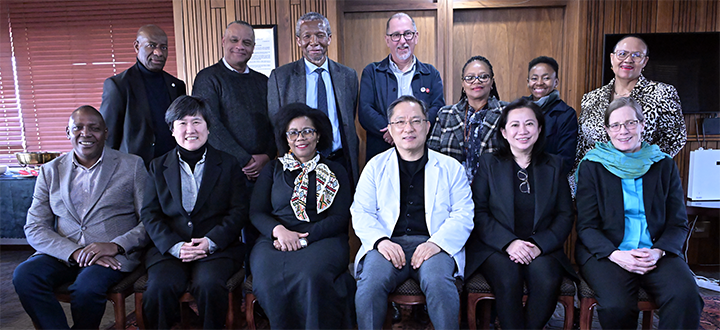 Unisa wins bid to host IAMS General Assembly
Unisa wins bid to host IAMS General Assembly
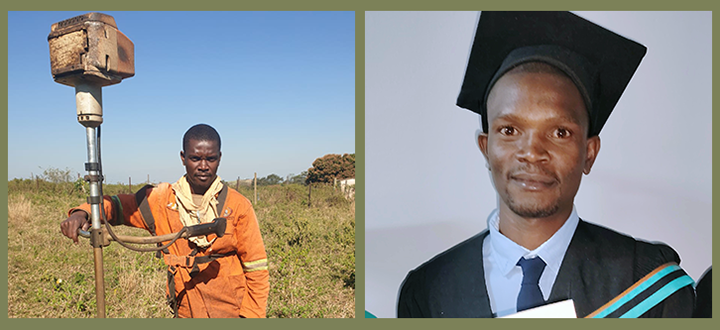 Cutting grass by day, pursuing Unisa studies by night
Cutting grass by day, pursuing Unisa studies by night
 Unisan’s research set to improve accident records management through AI
Unisan’s research set to improve accident records management through AI
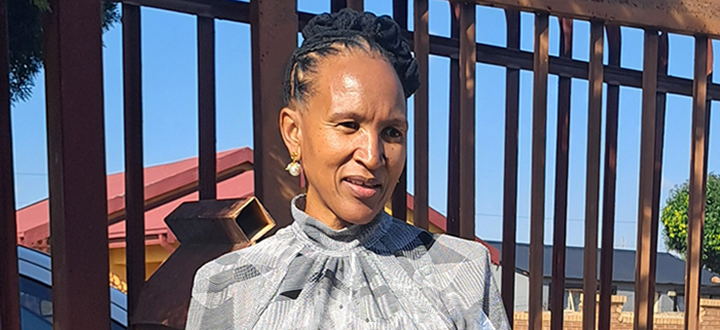 Koma e wetse: When tradition meets the harsh realities of modern livelihoods
Koma e wetse: When tradition meets the harsh realities of modern livelihoods
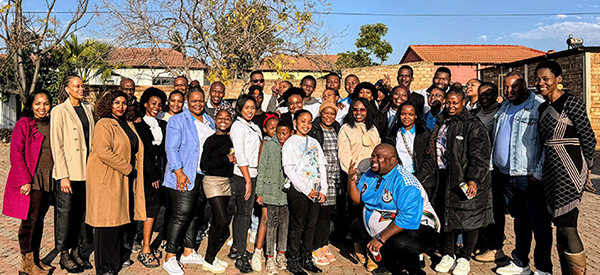 Imbizo inspires youth
Imbizo inspires youth